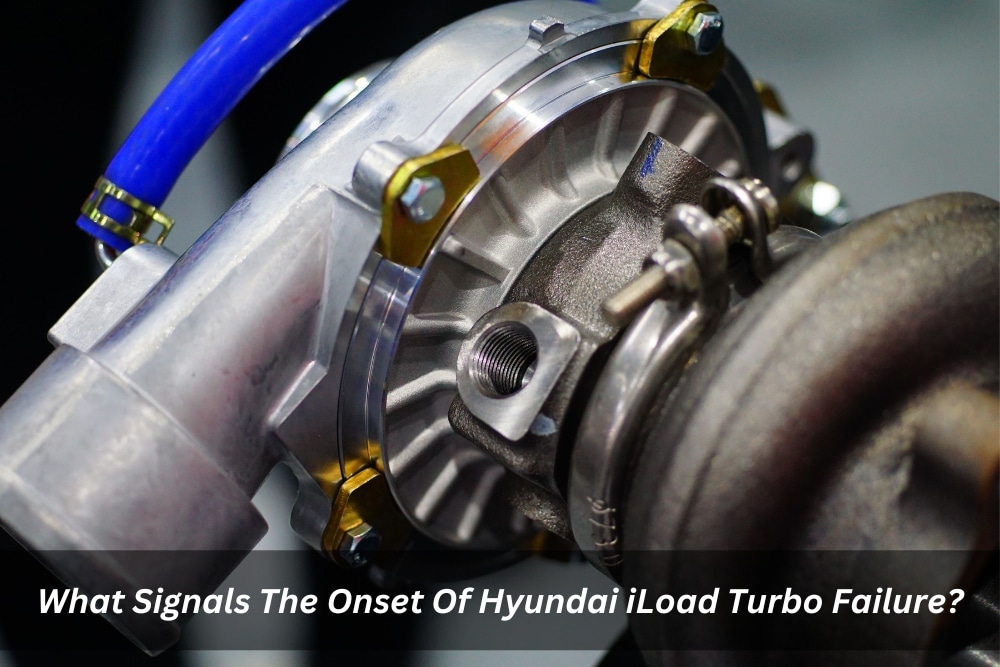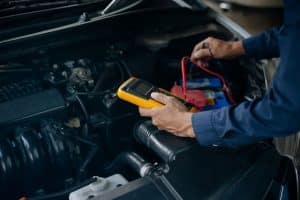The Hyundai iLoad is a reliable workhorse, known for its spacious interior and powerful engine. But like any vehicle, its heart lies in the intricate network of components, and one crucial piece is the turbocharger. This unsung hero boosts engine performance and fuel efficiency, but wear and tear, neglect or external factors can lead to its demise. So, how do you know when your iLoad’s turbo is on the brink? Buckle up, because this guide will equip you with the knowledge to identify the warning signs of Hyundai iLoad turbo failure and keep your trusty van running smoothly for years to come.
What are the common causes of Hyundai iLoad turbo failure?
Imagine the turbo as a tiny air pump, cramming more oxygen into the engine for better combustion and power. But constant work takes its toll. Common culprits include:
- Oil leaks: Lifeblood for the turbo, oil lubricates its bearings. Leaks starve it, leading to friction, wear, and ultimately, kaput.
- Blocked air intake: Just like you need clean air to breathe, the turbo needs unobstructed airflow. Grimy filters or blocked hoses restrict air, causing the turbo to overwork and fail.
- Damaged intercooler: This component cools down the compressed air before it enters the engine. A damaged intercooler means hot air, stressing the turbo and potentially leading to failure.
These are just a few common causes, but remember, prevention is always better than cure.
When should you be concerned about your iLoad’s turbo health?
Ignoring warning signs is like ignoring that check engine light – a recipe for disaster. Here’s what to watch out for:
- Reduced power: Does your iLoad feel sluggish, struggling to accelerate or maintain speed? This could be a sign the turbo isn’t delivering its usual boost.
- Black smoke from the exhaust: If you see puffs of black smoke, especially under acceleration, it might indicate incomplete combustion due to insufficient air – a potential turbo issue.
- Unusual engine noises: Whining, whistling, or metallic scraping noises coming from the engine bay could indicate wear and tear in the turbocharger.
- Check engine light: This all-encompassing warning light might not directly point to the turbo, but it’s always best to get it checked, as underlying issues could affect the turbo.
- Oil pressure warning: Low oil pressure can starve the turbo, so don’t ignore this critical warning.
If you experience any of these symptoms, don’t delay – seek professional help immediately. Early detection can prevent costly repairs and keep your iLoad on the road.
How can you prevent Hyundai iLoad turbo failure?
Prevention is key to a healthy and happy turbo. Here are some simple steps:
- Regular maintenance: This is your turbo’s best friend. Stick to the manufacturer’s recommended service intervals for oil changes and air filter replacements. Use high-quality oil and filters specifically designed for your iLoad. By prioritising consistent maintenance of Hyundai cars, you’re not just taking care of your vehicle, you’re actively preventing turbo trouble and extending its lifespan for years to come.
- Listen to your engine: Be mindful of any unusual sounds or changes in performance. Early detection and addressing minor issues can prevent them from snowballing into major problems.
- Avoid excessive towing or engine modifications: Overburdening your iLoad or pushing its limits with engine mods can put undue stress on the turbo, increasing the risk of failure.
By following these tips, you can significantly extend the lifespan of your iLoad’s turbocharger and save yourself the hassle and expense of repairs down the line.
What should you do if you suspect Hyundai iLoad turbo failure?
If you suspect trouble, don’t panic. Here’s what to do:
- Seek professional help immediately: Don’t ignore the warning signs. Take your iLoad to a qualified mechanic who specialises in turbocharger diagnostics and repairs.
- Explain your concerns: Share the symptoms you’ve been experiencing to help the mechanic pinpoint the issue.
- Trust the experts: Let the mechanic diagnose the problem and recommend the best course of action. Remember, early intervention can prevent further damage and potentially save you money.
Where can you get your Hyundai iLoad checked for turbo problems?
Finding the right mechanic for your iLoad’s turbo woes is crucial. Here are some options:
- Authorised Hyundai Dealerships: While often pricier, dealerships offer peace of mind with trained technicians and genuine parts. They have access to Hyundai-specific diagnostic tools and expertise, ensuring accurate diagnosis and repairs.
- Independent mechanics specialising in turbochargers: These specialists boast in-depth knowledge of various turbo systems and often offer competitive rates. Look for shops with strong online reviews and experience specifically with Hyundai iLoads.
- Mobile mechanics: For added convenience, some mechanics offer mobile services, coming directly to your location for diagnosis and repairs. This can be ideal if your iLoad isn’t mobile itself.
- DIY (Do-It-Yourself): While tempting, tackling turbo issues yourself is recommended only for experienced mechanics with specialised tools and knowledge. Improper repairs can worsen the problem and void your warranty.
Remember to:
- Compare quotes: Get quotes from several service providers before making a decision.
- Ask about experience: Ensure the mechanic has experience diagnosing and repairing Hyundai iLoad turbochargers.
- Check certifications: Look for mechanics with relevant certifications or affiliations, indicating their expertise.
- Read online reviews: Research online reviews and customer testimonials to gauge past experiences.
By choosing the right service provider, you can ensure your iLoad’s turbo gets the expert attention it deserves, keeping your trusted workhorse on the road for years to come.
How much does the Hyundai iLoad turbo failure cost to repair?
The cost of repairs depends on the severity of the damage and the chosen repair method. Here’s a general idea:
- Severity of damage: Minor issues like faulty sensors or hoses will be less expensive to fix compared to major internal failures.
- Repair method: Opting for a rebuild of your existing turbocharger might be more affordable than a complete replacement.
- Parts and labour: The specific parts needed and the mechanic’s labour rates can influence the overall cost.
Remember, these are just estimates. The actual cost can vary depending on your location, mechanic’s rates, and parts availability.
Keep your Hyundai running smoothly with expert turbo care
The Hyundai iLoad is a valuable asset, and its turbocharger plays a vital role in its performance and efficiency. By understanding the warning signs of turbo failure, taking preventative measures, and seeking professional help at the first sign of trouble, you can ensure your iLoad continues to be a reliable workhorse for years to come.
Remember, early detection and intervention are key to avoiding costly repairs and downtime. Don’t wait until your iLoad coughs and sputters – take charge of its turbo health today!
At Hyundai iLoad Engine Specialist, we understand the importance of your iLoad and its turbocharger. Our team of certified technicians boasts extensive experience diagnosing and repairing Hyundai iLoad turbo issues, utilising cutting-edge technology and genuine parts to ensure exceptional results.
Don’t settle for just any mechanic – bring your iLoad to the experts. Contact us today for a free consultation and let us help you keep your trusted van running smoothly and efficiently.



